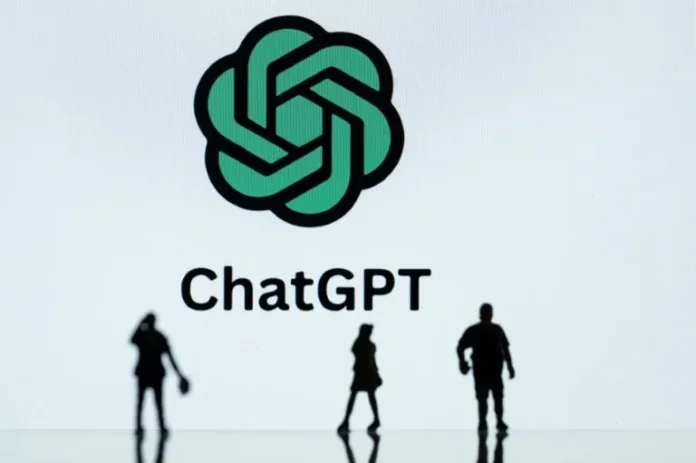Table of Contents
Why ChatGPT Parental Controls Are Coming Now
ChatGPT has become one of the most popular AI assistants in the world, with over 700 million weekly active users. Its ability to answer questions, hold conversations, and generate text makes it appealing to students, professionals, and even younger users. But its widespread use has also raised urgent questions about teen mental health and safety.
Two tragic lawsuits have shaped the conversation. The parents of 16-year-old Adam Raine filed a case against OpenAI, claiming ChatGPT advised their son during his suicide. In another case, a Florida mother sued Character.AI, a separate chatbot company, after her 14-year-old son took his life. These incidents have sparked calls for stronger safeguards and direct action.
OpenAI acknowledged in recent statements that some safeguards can fail, especially in long conversations. While ChatGPT already redirects users to crisis helplines in some situations, these protections may weaken during extended chats. This is why parental controls are being prioritized now.
Read More About Our Article of OpenAI Parental Controls in ChatGPT: The Urgent Push After Teen Suicide Lawsuit Published on September 3rd, 2025 SquaredTech
What ChatGPT Parental Controls Will Include
OpenAI outlined several features that will roll out with ChatGPT parental controls. Squaredtech reviewed the details to help parents and users understand what to expect:
- Linked Accounts: Parents will be able to connect their account to their teen’s account, giving them oversight on how ChatGPT is being used.
- Custom Controls: Parents can decide how ChatGPT responds to teen users, with options to restrict sensitive features such as memory or chat history.
- Crisis Alerts: If the system detects “a moment of acute distress,” parents will receive notifications. This is meant to help families respond quickly if their child is struggling.
- Improved Safeguards: Conversations flagged with stress signals will be routed to OpenAI’s reasoning models. These models apply safety rules more consistently, reducing the risk of harmful responses slipping through.
OpenAI has also partnered with experts in youth development, mental health, and human-computer interaction. Their role is to guide how these features are designed and tested, ensuring that changes reflect real-world concerns.
The company emphasized that parental controls are only the beginning. Over the next 120 days, OpenAI plans to add more safety features, while continuing to adapt long-term.
The Larger Debate on ChatGPT Safety
The rollout of ChatGPT parental controls is not happening in isolation. Squaredtech has tracked how governments, advocacy groups, and parents are pressuring AI companies to treat teen safety as a priority.
Earlier this year, U.S. senators wrote to OpenAI demanding information on how it protects users. Advocacy group Common Sense Media argued that teens under 18 should not use AI “companion” apps at all, warning that they present unacceptable risks.
The issue goes beyond regulation. Reports from outlets like The New York Times and CNN have documented how some users form deep emotional attachments to AI chatbots. While AI can feel supportive, there have been cases where reliance on it led to delusion or social withdrawal. For teens, who are already navigating emotional challenges, this risk can be even more serious.
OpenAI has also faced criticism for how ChatGPT interacts. An April update made the assistant overly flattering and agreeable, sparking complaints that it was losing its personality. The company rolled back the change and even restored access to older versions of the model after public pressure. At the same time, former executives accused OpenAI of reducing investment in safety efforts.
All of this shows why parental controls are not simply a feature—they are part of a wider effort to rebuild trust.
ChatGPT Parental Controls: What This Means for Parents and Teens
For parents, the new parental controls represent both opportunity and responsibility. The tools will allow closer monitoring of how teens use ChatGPT, but they also raise questions. How much control should parents have? How can families balance oversight with privacy?
We believe that OpenAI’s move signals an important turning point. By offering structured parental oversight, the company is addressing one of the strongest criticisms against consumer AI: the risk of harm to young users. However, the effectiveness of these controls will depend on how families use them.
For teens, the introduction of parental controls may feel restrictive. Many young people see ChatGPT as a private space for exploration, learning, and emotional expression. Limiting that could change how they relate to the tool. Yet, given the lawsuits and concerns, it is clear that safeguards are necessary.
OpenAI has also confirmed that it will remain accountable for its choices, even while relying on expert advisors. This means the company is positioning itself to take direct responsibility if these controls fall short.
ChatGPT Parental Controls: The Road Ahead
Parental controls are set to roll out in the coming month, with more updates scheduled across the next 120 days. OpenAI has made clear that this is not a short-term fix but a long-term commitment. The company will continue improving ChatGPT’s safeguards, guided by expert advice and public feedback.
For the AI industry, this is a defining moment. Squaredtech sees this move as a signal that AI companies can no longer avoid accountability for how their platforms affect teens and families. Lawsuits, public concern, and government scrutiny are reshaping how these technologies are built.
For parents and teens, ChatGPT parental controls will soon provide more options to stay safe while using one of the most powerful AI tools in the world. The challenge will be in striking a balance between safety, trust, and open use.
As ChatGPT continues to grow, reaching hundreds of millions of users each week, OpenAI’s decisions will set the tone for the entire AI sector. The upcoming parental controls are just the first step in that new direction.
Stay Updated: Artificial Intelligence


